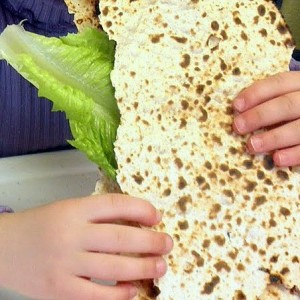Beitza 20 a-b.
1- We went over the story of Hillel who brought his Olah to the Beis Hamikdosh on Yom Tov. He was confronted by the students of Shamai.

A discussion ensued and the rest is history… The Halacha was finally established like Hillel. One may bring the Olas Chagiga on Yom Tov which is completely consumed on the Mizbeach, despite its having no other – מלאכת אוכל נפש – permissible use, such as eating of its meat.
The Gemara continues and relates another story, this time with an individual student of Beis Hillel bringing his Olah, yet again being confronted by a student of Beis Shamai, with the student of Hillel rebuking him. This story is perplexing: Was not the Halacha established in accordance with Beis Hillel?

2- The Rebbe’s point is that despite the first story of Hillel and the acceptance by all of his opinion, the custom was to not bring the Korban on Yom Tov.

This student’s action was the exception to the normal custom.
3- The reason being that Shavuos is a Yom Tov that emphasizes the ‘Lachem’ – a must to eat and drink. As opposed to other Yamim Tovim that according to some opinions the the Lachem portion is optional.
(On the idea of what “lachem” means prctically
see תקכט דיני שמחת יום טוב ס”י)
To underscore the importance of ‘Lachem’ – Yidishkeit that encompasses gashmius as a fundamental basis of life: Only karbanos which were eaten (e.g. Shlomim) were brought, even according to Hillel. As a result of this custom on Shavuos, all other Yomim Tovim followed not to bring the non-eaten Olah.

4- The Rebbe concludes that this is the source of the Alter Rebbe in Shulchan Aruch where he writes that ‘most Jews followed Beis Shamai’.
5 – We spoke about the first story where Hillel tells the Shamai students that the animal he brought was a female when in fact it was a male.

We read the text of the the Alter Rebbe’s ruling that changing the truth is only permitted when relating a story of the past. Discussed how this jives with our story.
6- We spoke about the Rebbe’s notes on the Haggadah regarding the status of the Yam Suf during its parting. Was the ground dry or semi dry?
See here at length.
In paragraph 1 you refer to ‘Olas Chagiga’. That should say ‘Olas Re’iya’ (or however you want to spell it).
The Chagigah is the Shlomim.
Mendel Nemanov